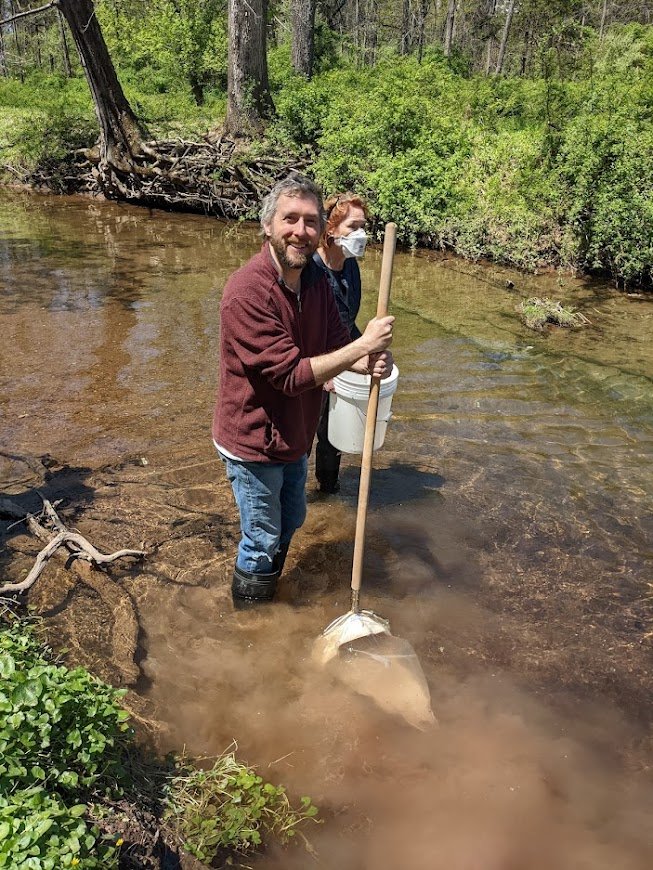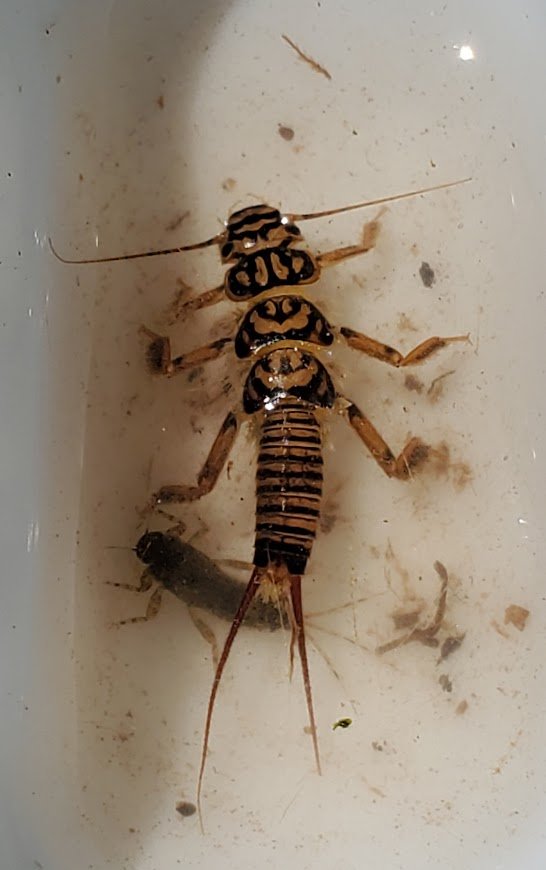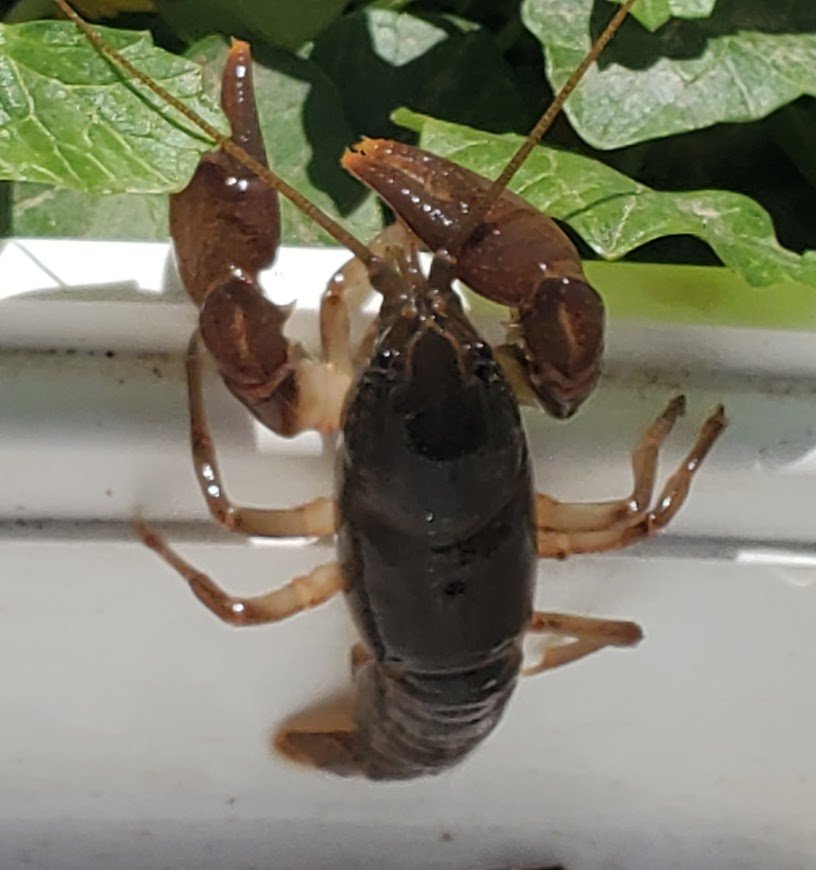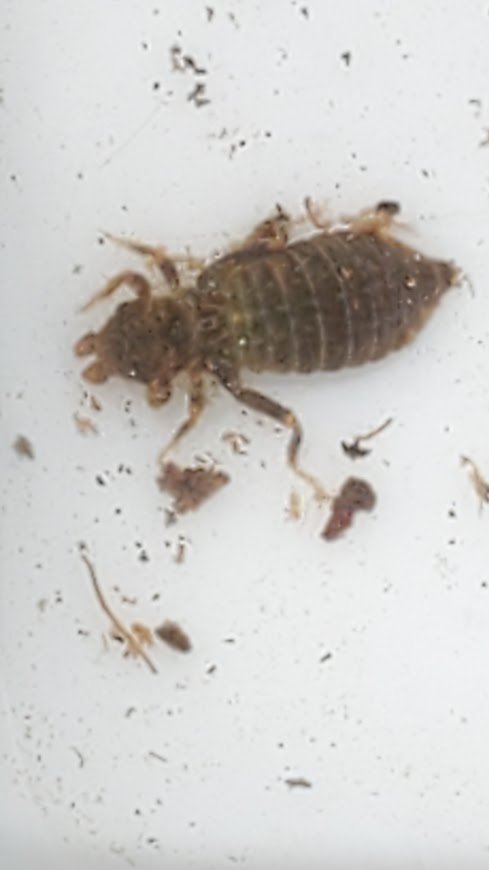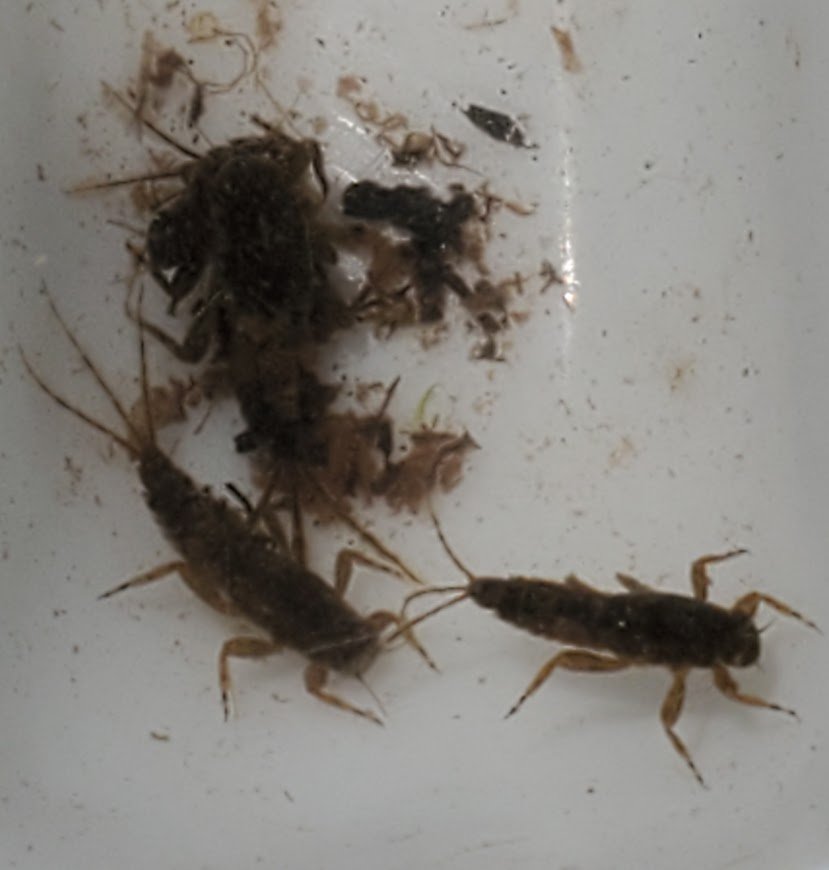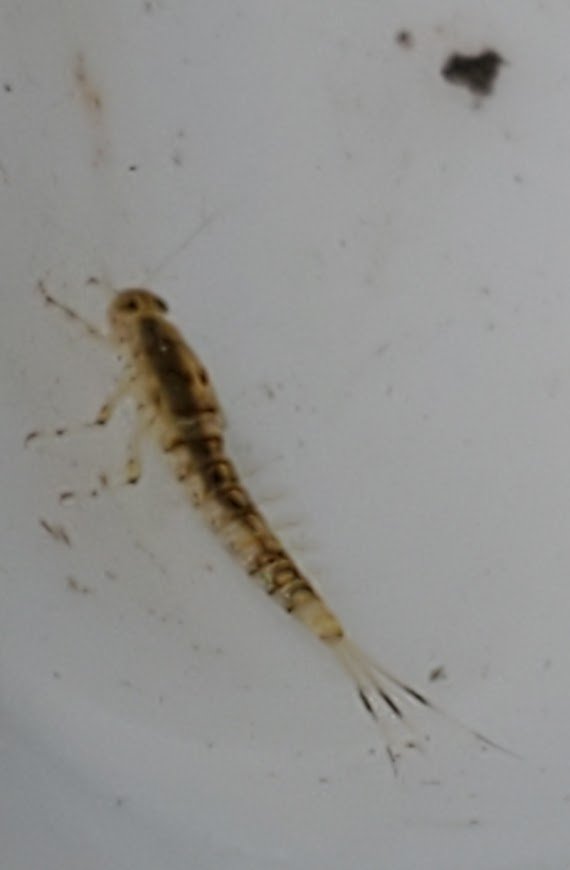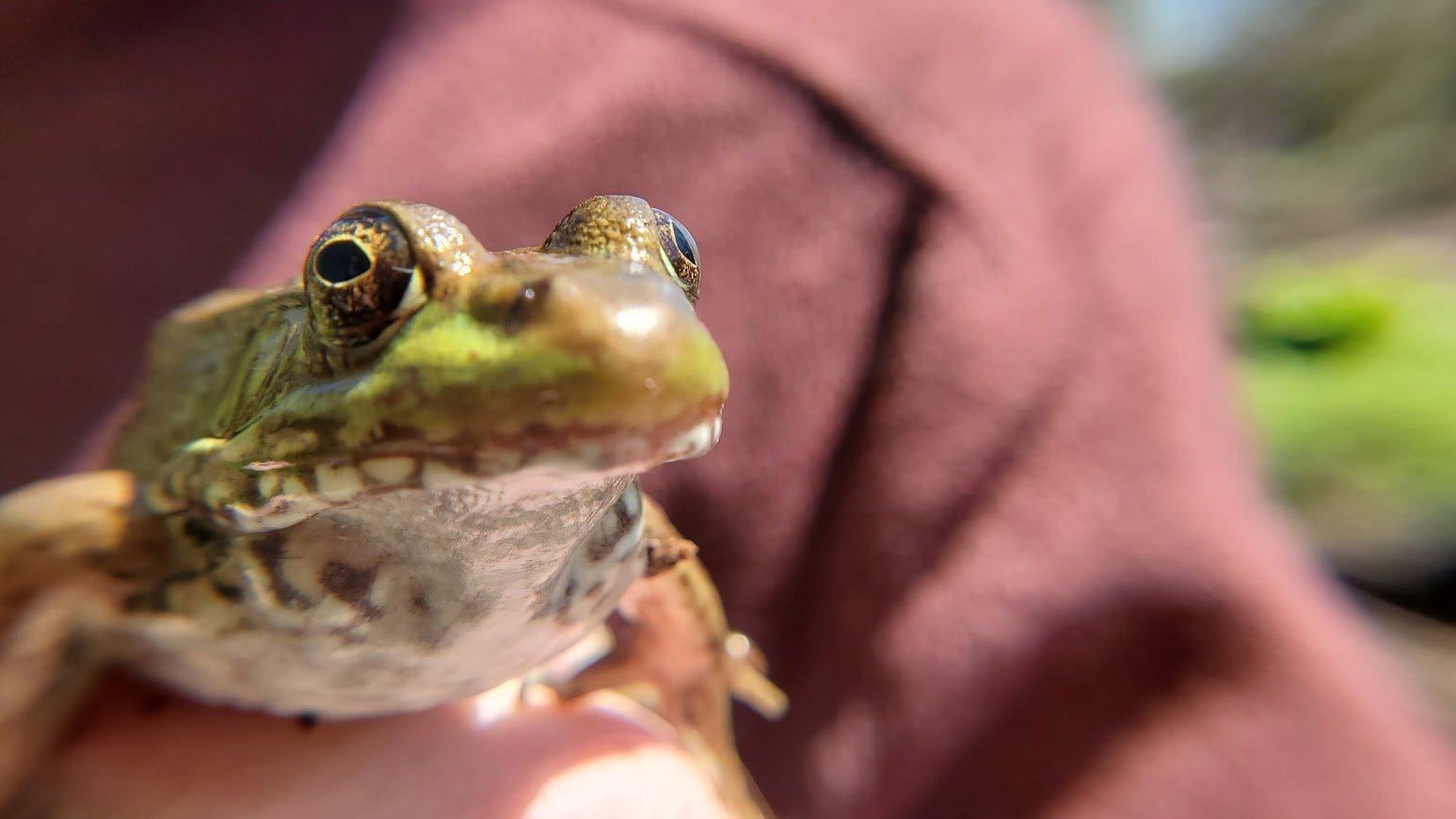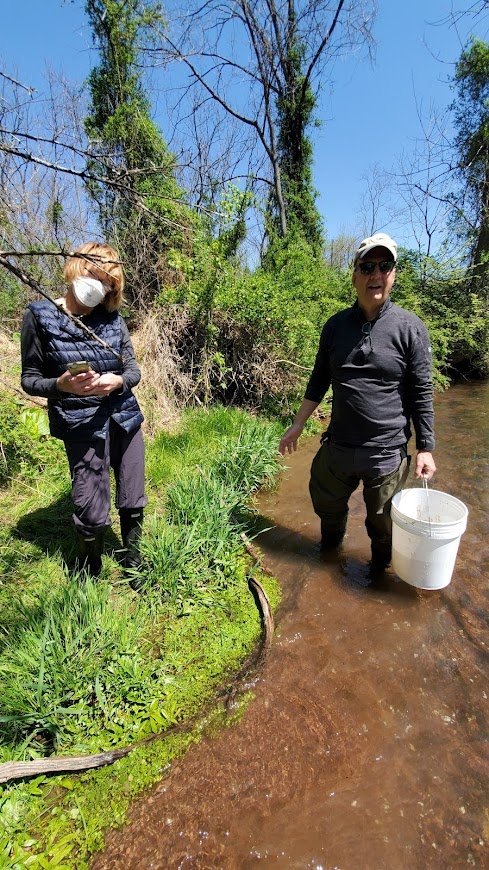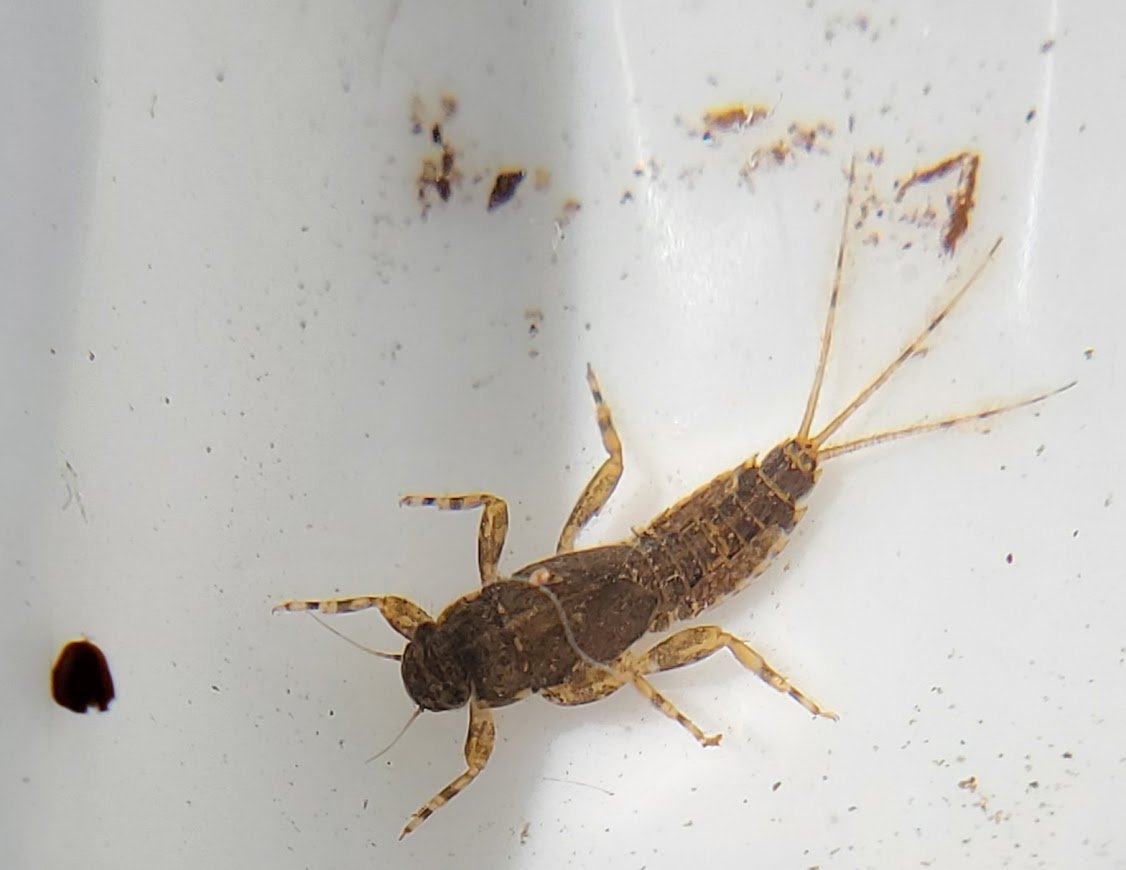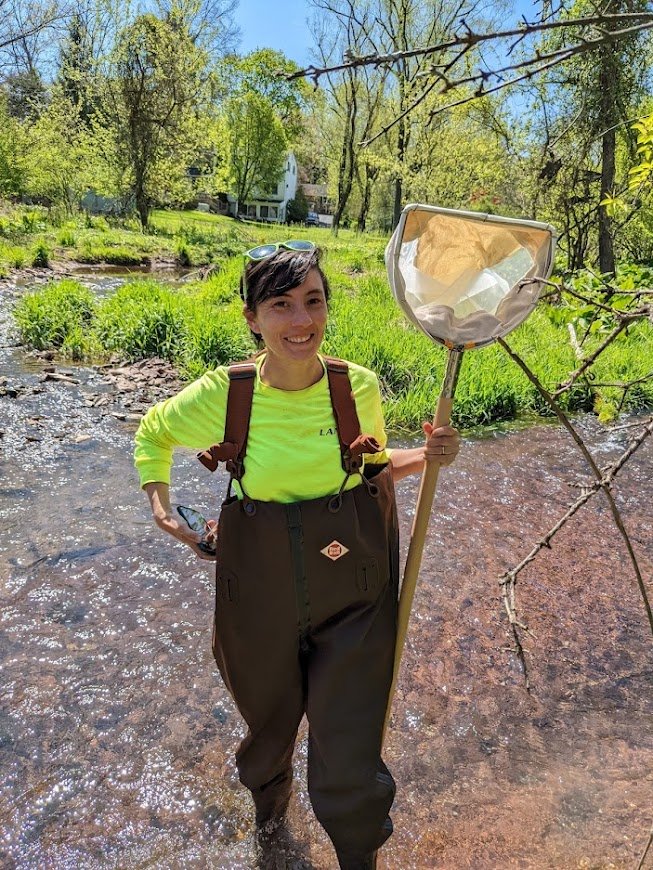Aquetong Creek Monitoring Program
The AWA has been monitoring the Aquetong watershed since 2010. The goals, parameters, and locations of our monitoring program has shifted over the years to reflect collecting the most useful data. We maintain a long-term monitoring database and are happy to share with local partners and stakeholders.
As of 2023, the AWA is conducting physical and biological monitoring program. Thanks to the multiple awards of the Lower Delaware Wild & Scenic mini-grant, we were able to purchase our own monitoring probes and expand to six physical monitoring locations across the watershed.
Introduction & Goals of Current Monitoring Program
In-situ probe embedded in Aquetong Creek.
The AWA Aquetong Creek Volunteer Monitoring Program includes macroinvertebrate biological surveys (led by Jade Greene) in the spring and fall, as well as physical in-situ water quality measurements (led by Michael Zolkewitz).
Macroinvertebrate and physical monitoring sampling locations:
Upper Aquetong site: located downstream of Aquetong Spring Park (same location as the monitoring from 2015-2019 to understand the impacts of the dam removal of the creek).
Middle Aquetong site: located downstream of the “upstream site” after the confluence of the North Branch of the Aquetong and is potentially impacted by more human land use activities
Temperature sampling locations: seven sampling locations throughout the watershed are being sampled for temperature only.
Map of sample locations.
Stonefly, indicator of excellent water quality, collected from Aquetong Creek
Goals:
Annually monitor water quality at multiple locations.
Identify any spatial and/or temporal gradients in water quality moving downstream from the headwaters of the Aquetong.
Monitor and identify longitudinal changes in water quality as the Traditional Neighborhood Commercial Zone within Solebury Township (Rt 202 Corridor) is improved and developed.
Identify potential locations for best management practices.
Jade Greene and Shannon Pendleton identify macroinvertebrates.
Results & Reports:






